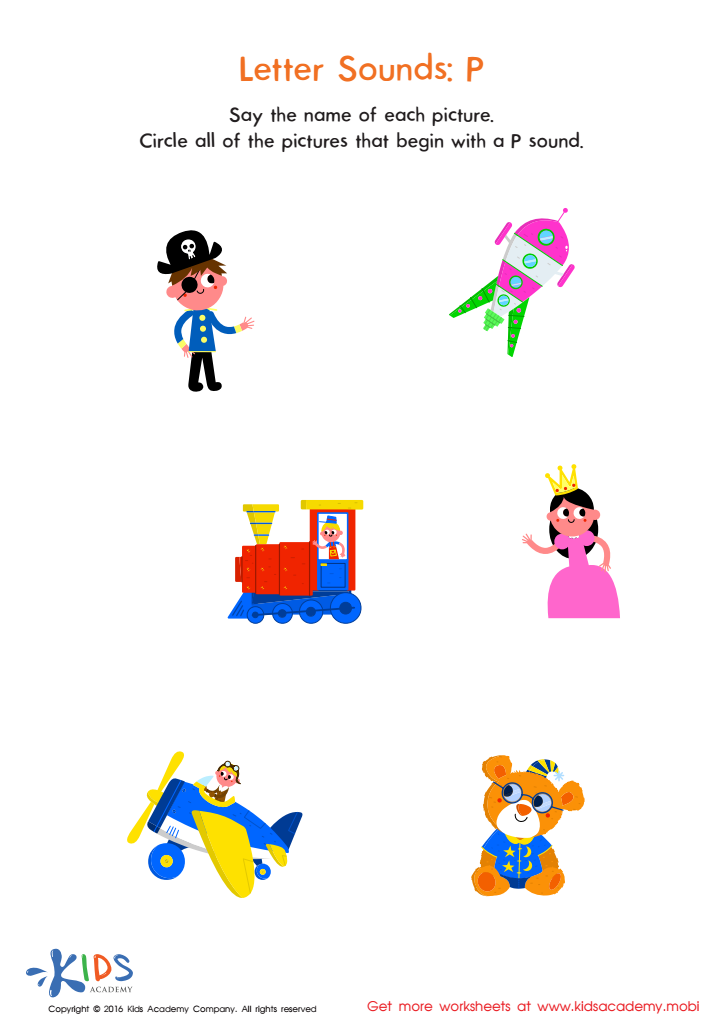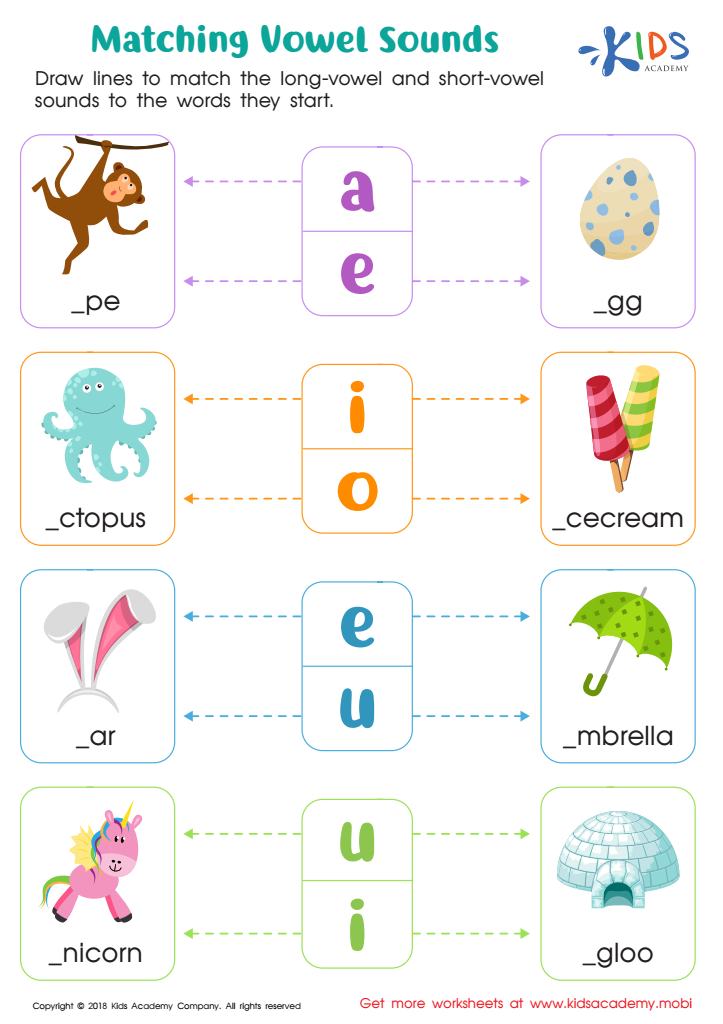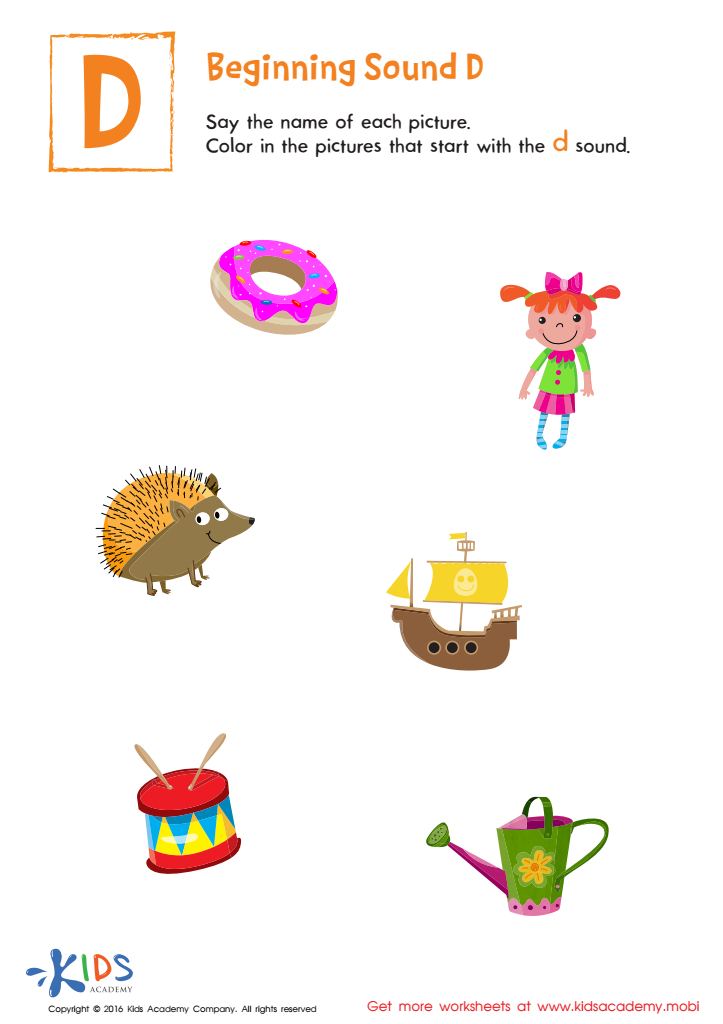Phonics development Normal Worksheets for Ages 4-5
3 filtered results
-
From - To
Explore our Phonics Development Normal Worksheets designed for children aged 4-5! These engaging, printable resources cultivate essential reading skills through interactive activities that make learning fun. Our worksheets focus on sound recognition, letter-sound correspondence, and blending, providing a solid foundation for young learners. Each worksheet is tailored to meet developmental needs, ensuring children build confidence as they progress. Ideal for both classroom and at-home practice, these worksheets offer colorful visuals and stimulating exercises to keep little minds engaged. Start your child’s phonics journey today and watch their reading skills flourish with our expertly crafted resources!


Letter P Sound Worksheet


Matching Vowel Sounds Worksheet


Beginning Sound D Worksheet
Phonics development is crucial for children aged 4-5 as it lays the foundation for reading and writing skills. During this formative stage, children are introduced to the sounds of letters and how they combine to form words, promoting their phonemic awareness. Strong phonics skills help children decode unfamiliar words, enhancing their confidence and fluency in reading.
Understanding phonics also supports vocabulary expansion and comprehension. When children can sound out words, they encounter new terminology and concepts, fostering a love for reading and learning. Early engagement in phonics can also prevent future reading difficulties, as a solid grasp of phonics is essential for literacy success in later years.
For parents and teachers, promoting phonics is an investment in a child's educational journey. By nurturing phonics skills, they help children become effective communicators and critical thinkers. This foundational literacy advantage can contribute to overall academic success and lifelong learning. Additionally, a strong start in reading can boost self-esteem, encouraging children to explore literature independently. Ultimately, supporting phonics development at this age is essential for creating proficient, enthusiastic readers and learners.
 Assign to My Students
Assign to My Students




.jpg)










